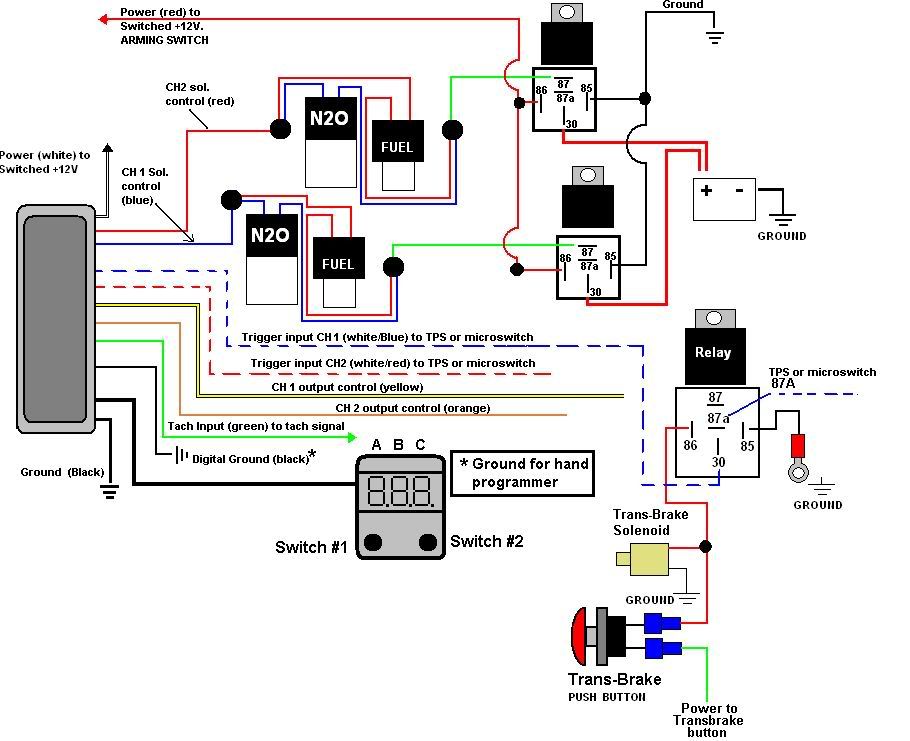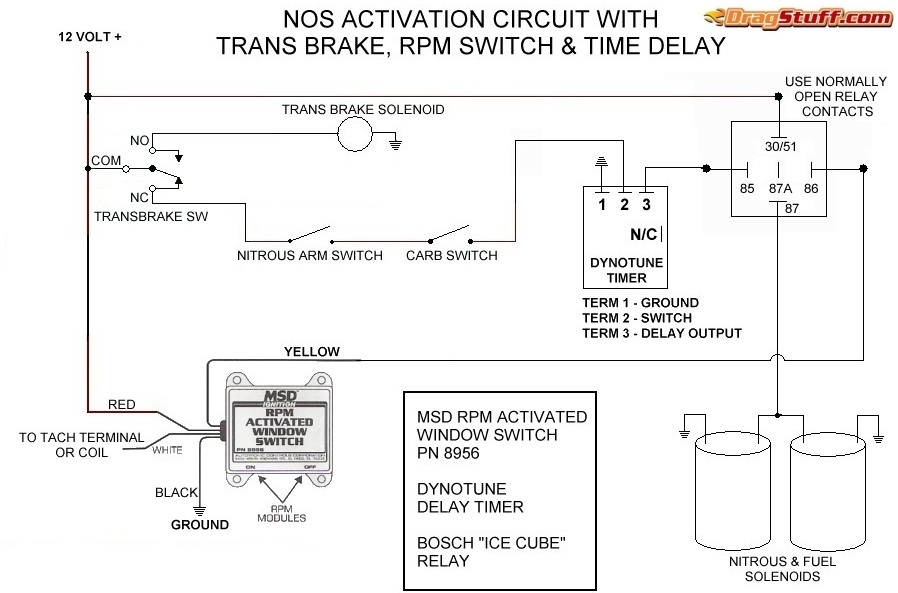When it comes to customizing and optimizing your vehicle’s performance, understanding the Nitrous And Transbrake Wiring Diagram is crucial. These diagrams provide a visual representation of the electrical connections and wiring for your nitrous system and transbrake, helping you make the necessary adjustments and modifications to enhance your vehicle’s performance.
Why Nitrous And Transbrake Wiring Diagram are essential
- Ensure proper installation of nitrous system and transbrake
- Optimize performance and efficiency
- Troubleshoot electrical issues
- Prevent damage to your vehicle’s electrical system
How to read and interpret Nitrous And Transbrake Wiring Diagram
Reading and interpreting wiring diagrams may seem overwhelming at first, but with some guidance, you can easily decipher the information provided. Here are some tips to help you effectively read and interpret Nitrous And Transbrake Wiring Diagram:
- Understand the symbols and color codes used in the diagram
- Follow the flow of the electrical connections
- Identify components and their connections
- Refer to the legend or key for clarification
How Nitrous And Transbrake Wiring Diagram are used for troubleshooting electrical problems
When faced with electrical issues in your vehicle, the Nitrous And Transbrake Wiring Diagram can be a valuable tool for troubleshooting. By following the wiring diagram, you can pinpoint the source of the problem and make the necessary repairs or adjustments. Here’s how you can use the wiring diagram for troubleshooting:
- Identify the affected circuit or component
- Check for continuity and proper connections
- Trace the wiring to locate any damaged or faulty parts
- Refer to the wiring diagram for guidance on repairs
Importance of safety when working with electrical systems
Working with electrical systems can be dangerous if proper safety precautions are not taken. Here are some safety tips and best practices to keep in mind when using Nitrous And Transbrake Wiring Diagram:
- Disconnect the battery before working on any electrical components
- Avoid working on wet or damp surfaces
- Use insulated tools to prevent electric shock
- Double-check all connections before powering up the system
Nitrous And Transbrake Wiring Diagram
Transbrake Nitrous Wiring Diagram – Wiring Diagram

Wiring Diagram For Nitrous Solenoids

Nitrous with transbrake schematic, overview – LS1TECH – Camaro and

nitrous wiring diagram with transbrake – MyiaKathleen

Nitrous Wiring Diagram With Transbrake

Nitrous System Wiring Diagrams – Dragstuff
